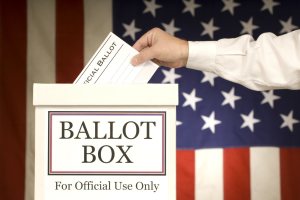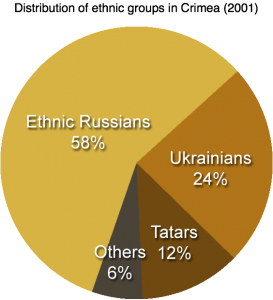by Douglas “Dayhorse” Campbell – State Chairman, American Constitution Party (Colorado)
 But First, A Few Entertaining Legal Cites for Your Consideration…
But First, A Few Entertaining Legal Cites for Your Consideration…
“The power to tax involves the power to destroy.” McCullock v. Maryland, 4 Wheat 316 @ 431 (1819)
“The right to exist and to live at liberty with property does not come from the government, but from the Creator God. The purpose of American government is to secure all such rights including the right to work. The property which every man has is his own labor.” Butcher Union v Crescent, 111 US 746 @ 756-7 (1884)
“A tax upon income derived from personal property is unconstitutional absent [read: without] apportionment, because the income and the personal property generating it were deemed to be one and the same.” Pollock v. Farmer’s Loan, 157 US 429 @ 557-8 (1895)
“Our laws and institutions embody the teachings of the Redeemer of mankind…America is emphatically Christian.” Church of the Holy Trinity v. US, 143 US 457 (1892)
“Unless a tax is imposed by clear and unequivocal language, the citizen is exempt.” Spreckles Sugar v. McClain, 192 US 397 @ 416 (1904)
“Liberty embraces the right to contract for the sale of one’s own labor.” Adair v. US, 208 US 161 @172-4 (1907)
“The right of private property includes the right to make contracts of personal employment by which labor and/or services are exchanged for money.” Coppage v. Kansas, 236 US 1 @ 14 (1914)
“There is a distinction between profit and wages (compensation for labor). Income is a profit from business and/or investment not mere compensation for labor.” Oliver v. Halstead, 196 VA 992 (1955)
“Contracts of employment imply the moral requirement of just [equivalence] between the amount paid and the service rendered.” Adkins v. Children’s Hospital, 251 US 515 (1923)
“The word ‘income” has the same settled meaning that it had in Doyle, in Eisner, in Flint, and in the CETA corporation/business profit tax.” Merchant Loan v. Smeitanka, 255 US 509 @ 518-19 (1920)
“The statute imposes income tax on the sale of personal property to the extent only that gains are derived therefrom by the vendor…no gain…no tax.” Goodrich v. Edwards, 255 US 527 @ 535 (1921)
“Reasonable compensation for labor or services rendered is not profit.” Lauderdale Cemetery v. Matthews, 354 Pa 239 @ 244 (1946)
Now, Let’s Demand to Have Our Constitution Followed… April 15 having recently passed us by, and the Tea Party demonstrations popularity and vehemence increasing with every occasion, it would be instructive to ask ourselves, “By what means would the Founders have funded the operations of the Federal Government, given their reluctance to hand over to that level of government the power to reach directly into the lives and businesses of the people?” Our first clue comes from the realization that the founders turned frequently to the Bible for wisdom and knowledge about government (such as the concept of separating the departments of government into three competing and mutually restraining functions.) To answer their inquiry, they might likely have turned to Matthew, the tax collector, in his chapter 17:
24 After Jesus and his disciples arrived in Capernaum, the collectors of the two-drachma tax came to Peter and asked, “Does not your teacher pay the temple tax?”
25 “Yes, he does,” Peter replied. When Peter came into the house, Jesus spoke to him. “What do you think, Simon?” he asked. “From whom do the kings of the earth collect duty and taxes–from the children [the subjects of their own kingdoms] or from strangers at the gate?”
26 “From the strangers,” Peter answered. “Then the children are exempt,” Jesus said to him.
From this, they might reasonably have concluded that the government should properly realize its support “at the gate” by imposing duties on imports, tariffs paid by “the strangers” who desired to participate in commerce with the citizens and the soon-to-be thriving economy of the new nation. These were not to be protective tariffs, which would soon have created retaliations against U.S. exports to other countries, but rather revenue tariffs, kept as low as possible, sufficient only to support the necessary, constitutional functions of the federal government. The lightly protective nature of a low tariff (say, capped at 10%) would have been negligible. Furthermore, if 10% is good enough for God, it ought to be good enough for the government. The next clue to their attitude comes from the Constitution itself, which states unequivocally,
“Congress shall have Power To lay and collect Taxes, Duties, Imposts [a tax imposed as a customs duty] and Excises [point-of-sale, consumption taxes]…uniform throughout the United States {Section 8}…[but] No Capitation, or other direct, Tax shall be laid.”{Section 9}
This, then, sets forth the fundamental principles of Constitutional, and unobtrusive, methods of funding the federal government, the implementation of which we will now describe, step-by-step.
STEP ONE It is said that even the longest journey begins with but a single step. Nevertheless, getting cleanly out of the starting gate is, without debate, the hardest part of any endeavor. And especially when the task at hand involves such entrenched interests as federal programs and such fiefdoms as federal departments. But this step is essential to the achievement of a stable and controllable government. The resistance to this step will be formidable, but it can be accomplished if the electorate becomes loud enough and persistent enough to demand it of those they elect to office. This step is, of course, the trimming back of our bloated bureaucracy to within its Constitutional boundaries. First, each department and function of the government must stand up to Constitutional examination to determine, honestly, whether or not it is even authorized to exist under some provision of Article I, Section 8, or any other specific reference therein. The next task would be to examine whether it is justified by the cost/benefit ratio it has historically achieved. Finally, it should be subjected to the smell test to make sure it’s not just some rancid slab of bacon, brought home to his state by a congressional long-timer. All expenditures of the government must be made to pass the same tests. Once whittling is done, and all the earmarks are de-marked, the federal budget should be a shadow of its former self–by half or better.
STEP TWO This is where we make the transition to having the government’s vacuum hose sucking out of someone else’s pocket for a change. This is where we substitute (that’s right, I said SUBSTITUTE) the tariff package we talked about earlier for the current panoply of direct personal taxes, including income tax, the anti-social insecurity tax, estate tax, death tax, hearta tax, corporate tax, and perhaps even fuel taxes. As contemplated earlier, this duty tariff should be capped at 10%, would apply to all imports regardless of country of origin (no messin’ around with most-favored-nation statuses; but maybe a self-supporting ally discount), and would be adjusted accordingly if the goods were sold in the US for more than their value as stated on entry. Oh, yeah…I almost forgot to mention the IRS. Gone. Yup. Gone. Well, almost. Bereft of its current task, at least, and transferred 100% to the Customs Division of the Commerce Department, where it can do no further damage to our citizens or to our country. Simultaneously, because this is a substitutionary action, the income tax, with all its attendant costs and burdens, would be eliminated. Contrary to the opinions of some who in the past have proposed the demise of the IRS, we need not repeal the 16th Amendment to accomplish this, although for other reasons, this is not an altogether bad idea–but it can wait. Allegations aside, that the progressivist 16th Amendment was never properly ratified and is not a legitimate amendment to the Constitution (Google “The Law that Never Was” by Benson & Beckman), it’s obvious that it allows, but does not require, any tax, nor does it repeal the prohibition against direct taxes in Article I, Section 9. Then, to top it all off, the Supreme Court of the United States (SCOTUS) asserts:
“The 16th amendment prevented a direct tax upon sources from which income was derived and was not intended to authorize a tax on occupations and labor; nor a new breed of tax subject to neither apportionment nor uniformity.” (This quote is questioned by some, but it’s true nevertheless.) Brushaber v. Union Pacific, 240 US 1 @ 12, 17, 19 (1916)
“The 16th amendment conferred no new power of taxation upon Congress. It did not authorize any exceptional direct income tax without apportionment, nor permit any resort to source whence income is derived. It represented a true excise upon the result of doing business.” Stanton v. Baltic Mining, 240 US 112, 114 (1916)
“It is essential to distinguish between what is and is not income. Congress has no authority to define income. Income may be defined as the profit or gain derived from capital, from labor, or from both combined, provided it be understood to include the profit gained from the sale or conversion of capital assets. The government has failed to correctly appraise the force of the term “income ‘. The 16th amendment applies to income, not to sources whence it came, and did not repeal or modify the requirement for apportionment of all direct taxes on other property.” Eisner v. McComber, 252 US 189 @ 205-7, 13, 17, 19 (1920)
STEP THREE Should the tariff outlined in STEP TWO prove inadequate to the task of funding fully the legitimate, constitutional functions of the federal government, the constitution does authorize “excises” (a national sales tax, but not a VAT) which should be enacted only if necessary AND limited as well to a maximum of 10%, for the same reason as above. A consumption tax should always be preferred to an income tax, because it is avoidable (just don’t buy the goods) and does not permit the federal government to snoop into the private finances of individuals. Since there would be no economic “drag” from taxes levied on profits from savings or investments, the economy would be “stimulated” with a vengeance, and full employment would soon reign supreme.
STEP FOUR Should it become necessary, as a final backup, if there remained a shortfall of revenues to cover the legitimate costs of the federal government, such a shortfall could be invoiced to the state legislatures in proportion to each state’s congressional representation (it matters little which fraction is used: for Colorado 7/435=1.6019%; 9/535=1.6822%), leaving it to the states’ legislatures as to how to raise the funds, thereby also restoring the Doctrine of Interposition (which is this: the long arm of the federal government should not reach past the state government to deal directly with individual citizens) and creating pressure by the states’ legislatures on each state’s congressional delegation to bring federal spending under control. A representative or senator will likely pay far more attention to a resolution calling for spending cuts (Be it Resolved: Hey, you! Delegation! Vote to spend less!) from his home state’s legislature, than he would to a letter from you or me (even though he shouldn’t!).
Doug Campbell passed away in June 2014, while still serving as state chairman. This article was originally published in “America Needs A Third Party Now! in 2011.




